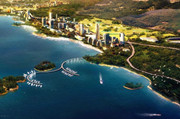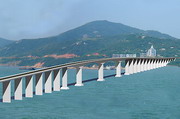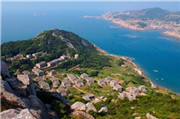Two sessions delegates weigh in on Pingtan's development (Part III)
( chinadaily.com.cn )
Updated: 2015-02-06
|
|||||||||
The Fifth Session of the Pingtan Committee of the Ninth Chinese People's Political Consultative Conference and the Fourth Session of the Pingtan Committee of the 16th National People's Congress concluded on Jan 22 and 23, respectively.
The following are proposals by some of the representatives at the two sessions:
Wu Haiying suggested that local authorities roll out financial support for a possible breakwater project at Guocai village. The costal village, with more than 1,100 households, is troubled by giant waves during typhoon season. The breakwater project is estimated to cost 3.8 million yuan ($610,000).
Lin Guomao called for a collective effort to tidy up the environment, especially in rural areas. The local authorities can streamline garbage carts, and the government can invest more in the cause of countryside environment protection.
Xue Yuqin thought that the salaries and incentives of grassroots cadres ought to be raised, as they undertake the heavy workload of connecting officials and the common people and smoothing out issues.
Liu Sunlan noted that an increasing number of local fishermen are losing their work in aquaculture due to the construction of many projects that take up the mudflat areas. They should thus be compensated somehow.
Zhou Yunguang made a clear point that authorities in Pingtan should accelerate study and implementation of various tax rebate policies for local enterprises that will attract more investors to Pingtan and boost its development.
Zheng Sheng urged that Pingtan ought to better conserve its cultural landscapes, especially its unique stone folk dwellings. Under this premise, the tourism authority can take advantage of natural resources and cultural traditions in its countryside tourism blueprint in order to attract more tourists.
Zheng Zhuangzhi’s proposals focused on building more public cemeteries in Pingtan to ease problems such as expensive tomb places, illegal funeral services and shortage of columbaria.
Lin Junji and Lin Jinsheng both pointed out the dirty environment in rural areas that involve shanty towns, heaps of garbage and roadside sewage, which have a bad influence on people’s lives. They suggested local governments improve the situation.






